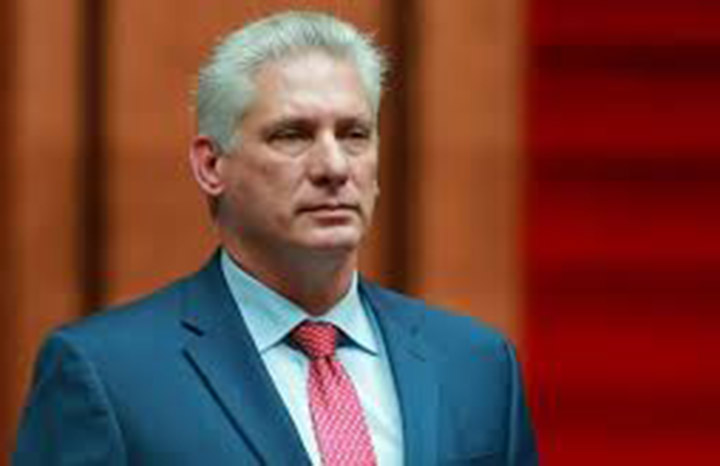
HAVANA, Cuba, Sep 9 (ACN) After concluding an official tour of Vietnam, China, and Laos, Miguel Diaz-Canel, First Secretary of the Central Committee of the Communist Party of Cuba (PCC) and President of the Republic, emphasized today his country's determination to work toward the implementation of all agreements.
The trip, which began in Hanoi, focused on strengthening bilateral ties with the three nations, with which Cuba maintains long-standing diplomatic ties.
At the invitation of the Party and Government of Vietnam, Diaz-Canel participated in the ceremony commemorating the 80th anniversary of the August Revolution and National Day on September 2.
Likewise, the Cuban delegation commemorated, along with officials from the Indochinese nation, the 65th anniversary of diplomatic ties (established on December 2, 1960), at an event where Diaz-Canel affirmed that ties between Cuba and Vietnam are strengthening in all areas: party, parliamentary, defense and security, judicial, labor, women's, and young communist organizations, and solidarity.
The head of state's agenda included meetings with the General Secretary of the Communist Party of Vietnam, To Lam; President Luong Cuong; Prime Minister Pham Minh Chinh; and the Speaker of the National Assembly, Tran Thanh Man.
The two sides exchanged agreements related to rice production in Cuba for the 2025-2027 period, cooperation in health, and the establishment of a joint venture between the Green Institute and Labiofam, among others.
Continuing the tour, in Beijing, Cuban delegation participated on September 3 in the military parade commemorating the 80th anniversary of the victory in the War of Resistance against Japanese Aggression.
Diaz-Canel also met with his counterpart, Xi Jinping, during which they discussed topics related to bilateral cooperation, especially the China-Cuba community with a shared future.
In addition, the signing of 11 cooperation documents was announced, including those related to the Belt and Road Initiative, political consultations, practical cooperation, cultural exchanges, and the Global Security Initiative.
Diaz-Canel visited sites of historical and socioeconomic interest in China and attended activities commemorating the 65th anniversary of bilateral diplomatic ties, established on September 28, 1960.
As the final stop on the Asian tour, the delegation arrived in the Laotian capital, Vientiane, on September 6, where the Cuban president met with Thongloun Sisoulith, Secretary General of the Lao People's Revolutionary Party and President of the Republic; with Prime Minister Sonexay Siphandone; and with Chaleun Ylapaoher, Vice President of the National Assembly and President of the Laos-Cuba Friendship Association.
Thongsavanh Phomvihane, Lao Minister of Foreign Affairs, emphasized that Diaz-Canel's state visit will have a very positive impact on expanding bilateral relations, in statements to the press team accompanying the president, published on the Cuban Presidency website.
The official Cuban delegation included members of the Political Bureau of the PCC Central Committee, Bruno Rodriguez Parrilla, Minister of Foreign Affairs, and Army Corps General Alvaro Lopez Miera, Minister of the Revolutionary Armed Forces.
Emilio Lozada Garcia, head of the Central Committee's Department of Foreign Affairs; and Ministers Oscar Perez-Oliva Fraga, Minister of Foreign Trade; and Ydael Perez Brito, Minister of Agriculture, were also part of the state delegation.
Sidebar

 Agencia Cubana de Noticias
Líder en información nacional
Agencia Cubana de Noticias
Líder en información nacional








Nos reservamos el derecho de no publicar los comentario que incumplan con las normas de este sitio